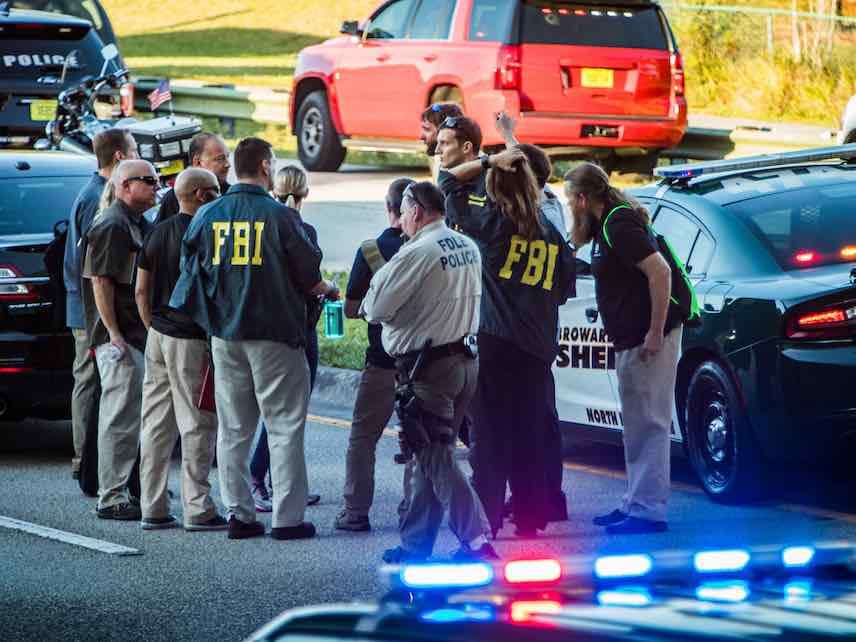School Resource Officer Who Failed to Confront Mass Shooter Previously Defended Cops Living at School Rent-Free
Scot Peterson, SRO of Marjory Stoneman Douglas, also failed to assist a CPS investigation into Nikolas Cruz.

Scot Peterson, the 54-year-old Marjory Stoneman Douglas school resource officer who resigned after security footage revealed he made no effort to engage alleged mass killer Nikolas Cruz during the rampage last week, previously lobbied Broward County school officials to continue funding a program that allowed cops to live in mobile homes on school property rent-free.
Not only did Peterson fail to confront Cruz—he also failed to assist a previous investigation, undertaken by state authorities, to determine whether Cruz was a threat to himself or others. His mistakes compound the errors made by other law enforcement entities, including the FBI and Broward County PD.
The housing program was in effect at 32 different Broward County schools. Officials reasoned that cops living at the schools would mean 24-hour security. But a 2015 audit determined that the program was a waste of money.
The auditor said, "Frankly, I'm embarrassed," and "I would shut it down immediately," according to the Sun Sentinel. Officials could find no evidence that the live-in cops were deterring crime.
Officer Peterson took a different view.
About a dozen officers from the program attended the meeting. They called the report skewed and lauded the advantage of keeping law enforcement on school grounds.
"These colleagues work hard. We are crime prevention, an audit report will never show how much we prevent," said Scot Peterson, an officer who has lived at Atlantic Technical College in Coconut Creek since 2000. He said he's arrested several juveniles for breaking into school property.
Yet according to the audit, one of the officers had even made the decision to sublet his on-campus mobile home to two people who weren't police officers. Most of the officers did not turn in monthly reports detailing their activities, and failed to respond to 73 percent of security alarm triggers. But ending the program would be unfair, said Peterson. "You are talking about the livelihood of some of these people," he said at the time.
The housing program for school resource officers wasn't really about safety. It was welfare for state employees. Seen through this lens, Peterson's utter failure to confront the shooter isn't particularly surprising.
The New York Times has more information on Peterson:
In February 2016, the sheriff's office received what it described as "thirdhand information" that Mr. Cruz "planned to shoot up the school" and had posted a picture on Instagram of a "juvenile with guns." A deputy determined that Mr. Cruz had knives and a BB gun and forwarded the information to the school resource officer at Stoneman Douglas High. That was Deputy Peterson.
The Times also notes that the Florida Department of Children and Families—the state's child protective services agency—investigated Cruz in 2016 but determined that he was not at risk of harming himself or others.
According to the agency, its Adult Protective Investigator (API) attempted to talk to Stoneman Douglas's SRO (Peterson, presumably) about Cruz, but:
The school resource officer was contacted and refused to provide specific information to the investigator. Florida law does not give APS the authority to compel law enforcement to provide additional information during an investigation.
We can add this oversight to the lengthy and ever-growing list of catastrophic law enforcement failures at play in the Parkland shooting. Don't let anyone say putting even more cops in schools is a reasonable response.


Show Comments (140)